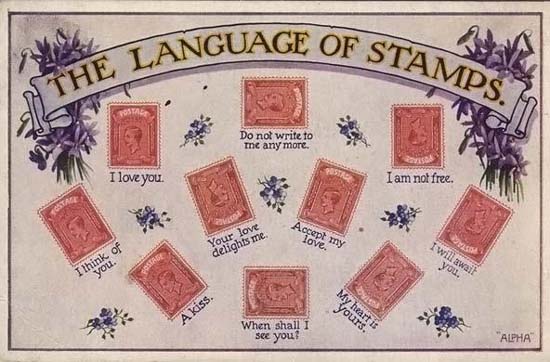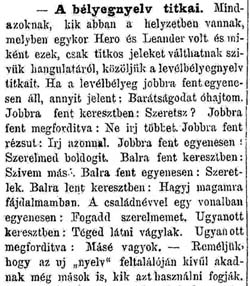And since I have to be there at 6 in the morning and we will stay there till god knows when, chances are we shall only meet again late Monday afternoon.
All right, now that I got this out of the way I thought I shall present you guys with a bunch of cool secret languages. So let's get started, cause I don't have much time :P
1. Flowers

Than there were of course herbs, fruits, vegetables and also spices added to this mix, so you probably had to carry a huge lexicon with you every time you ventured out. And here's a cool little link for you people who want to learn more about this (For the curious but untrusting, it's a whole book on the language of flowers).
2. Thieves' cant
As the name says, this particular language was used by thieves, beggars and hustlers, and it was made up in about 1530. It is said that it was developed from the Romany language (surprise, surprise). Of course at the old times it was actually quite popular, because theaters and writers started using it for their works, so I'm guessing it wasn't that big of a secret language (not that the previous one was... I still don't get the reason for a secret languages that everybody knows anyway. Why not just come out and say: "Yo, fuckface, you're ugly and yo momma is a whore" if anyone knows that anyway?)
Still, for those who want to learn the intricacies of this language there are whole dictionaries and other books that explain how to pronounce or build your sentences.
3. Postage stamps

This isn't that old either - it started out with the Austro-Hungarians in 1869. The first mention of it was in a Hungarian paper:

This roughly translates into: For all those who are in the situation of Hero and Leander, and similarly to them can only exchange secret signs about the feelings of their hearts, here we publish the secrets of the language of stamps. If the stamp stands upright in the upper right corner of the card or envelope, it means: I wish your friendship. Top right, across: Do you love me? Top right, upside down: Don’t write me any more. Top right, thwart: Write me immediately. Top right, upright [once more again???]: Your love makes me happy. Top left, across: My heart belongs to someone else. Top left, upright: I love you. Bottom left, across: Leave me alone in my grief. In line with the name: Accept my love. Same place, across: I wish to see you. Same place, upside down: I love someone else. – We hope that besides the inventor of the “new language” there would be other persons too who would eventually use it. (source)
If you don't want to read the source (highly recommend it!), here's something you should know: the language became so popular, people used it all over Europe.
Neat, eh?
4. Polari
I'm pretty sure that unless you lived around in 1900 to 1970 and you were gay you never heard of this one. Polari was widely used by the British gay population between those two ages I just mentioned.
At first it was only used in some pubs, but it quickly got popular, and till 1970 it was used not only in gay pubs, but also in theaters and of course, since it got popular because of traveling merchants - on merchant ships.
Since in 1967 homosexuality became legal, tho, it seemed that there was no more need for the secrecy, thus the language began to decline.
Still, looking at the dictionary, I can understand WHY it was popular. Vada the dolly dish, shame about his bijou lallies is one of my favorites. Also, watch out in what context you use the word "troll"...
5. Fans

The picture above is obviously a newer variation of the old language, but apparently it is still known in some corners of the world. And once again you won't be surprised at how creative the Victorian people were when it came to get a lady in your bed.
As you might know, in those times fans were really popular, not just to cool off. Ladies had to learn a whole bunch of things about them, including the material they were made of, the objects they were decorated with, and the correct ways of holding it in different situations. This was highly necessary in those years, because if you didn't hold your fan in a correct way you could become the laughing stock of everyone around you.
Although period literature doesn't mention the language directly, the fan WAS a big part of a lady's life. It was an extension to her gestures, so people could pretty clearly read what a woman wanted only by watching her.
The only thing I wonder about this, tho, is how did they use this in a conversation? Would the girl just flutter the fan, while the man talked her ears off? Well, here's the answer to that question.
